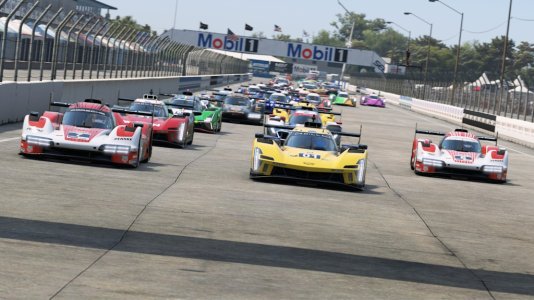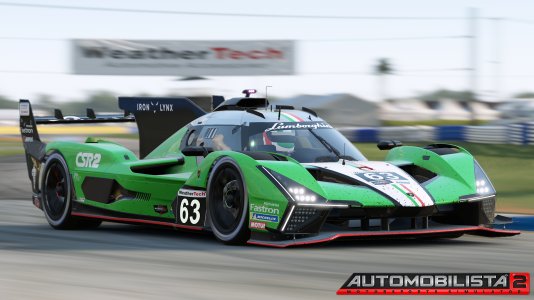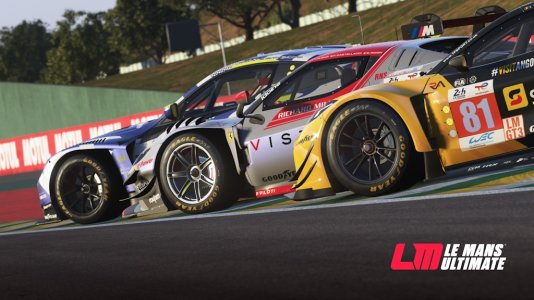He may not have won their showdown in the desert, but it was Nico Rosberg to whom went the spoils on Sunday.
Needing at least third should teammate Lewis Hamilton take the victory, Rosberg proved up to the challenge, taking second despite Hamilton’s concerted attempt to back him into the chasing pack.
The better of the two Mercedes drivers all weekend, Hamilton knew he’d need a minor miracle to steal the title out from under Rosberg, but neither Ferrari’s Sebastian Vettel nor either Red Bull driver would oblige him. Taking matters into his own hands with a noticeable drop-off in pace despite some pointed objections from the pit-wall, Hamilton was able to get Vettel well within DRS range by the final lap, but never close enough to pass. Finishing with only 1.246s separating Rosberg and fourth-placed Max Verstappen, Rosberg had taken the title by just five championship points.
A race that served up a memorable end to the season, read on for a look at all the big stories from the 2016 Abu Dhabi Grand Prix.
After 206 races, 23 wins, two driver’s titles to his teammate, Nico Rosberg is finally a world champion.
The title-winning permutations may have been strongly in his favour, but make no mistake: Rosberg did it the hard way. Whether it was Max Verstappen, Sebastian Vettel or indeed Lewis Hamilton, Rosberg’s P2 was constantly under siege. After conceding pole to Hamilton for the fourth-straight race, both Mercedes drivers were able to avoid any problems at the start, but a delayed release at his first pit-stop brought the German out behind an unstopped Verstappen, the Red Bull going longer on its super-soft tyres. Not being able to afford the hold-up if he wanted to guarantee himself the championship, Rosberg found himself with a “critical” need to pass Verstappen – a challenge to which he responded almost immediately with a fearless lunge into turn 8, setting up a pass on the straight to relieve the pressure, albeit temporarily.
Still 1-2 out of their final pit-stops, with the pack’s best efforts having failed to help him, Hamilton decided to take matters into his own hands by backing-up Rosberg with pace that was Carmen Jorda-levels of slow. Where earlier Verstappen had brought the potential of a threat from behind, it was Hamilton’s driving that made it a reality, ensuring a down-to-the-wire finish that brought Vettel back into play and caused fits on the Mercedes pit wall. In the end Rosberg was able to survive, but it meant that even on what should be one of the most positive days for Mercedes, they couldn’t escape controversy.
However, considering the circumstances it’s hard to criticise Hamilton. The pace of their rivals clearly not enough, Hamilton had no other recourse in a race that only affected his standing to Rosberg. Having sewn-up the constructor’s title in Japan, the Brit was well within his rights to try and push Rosberg off the podium, and had it worked, would have been a masterful bit of gamesmanship. Furthermore, with the influx of regulation changes for 2017, Abu Dhabi might have been the last race the two were able to fight without a legitimate threat to their constructor’s dominance. It was exactly what to have expected from Hamilton, and a fitting way to cap the last three years of their rivalry.
Of course, having won nine races to ten for his teammate, the role of reliability will inevitably colour much of the discussion around Rosberg’s championship. It undoubtedly played a part, but it doesn’t make the German any less deserving. The Rosberg of 2016 was a significant improvement on the 2015 and 2014 versions, driving with the composure of a champion that he had lacked in previous seasons, and while Hamilton may have won the last-four races, when the championship was truly in balance coming out of the summer break, Rosberg was the better driver. This was the realisation of a dream Rosberg has been working towards his entire life, and rightfully so.
While Nico Rosberg is sure to grab all the headlines, that wasn’t the only championship battle decided on Sunday.
Beating Williams 10 points to 2, Force India were able to secure a best-ever fourth-place in the constructor’s standings, while further downfield Sauber managed to hold off Manor for the tenth and final prize-paying spot 2 points to 1. Considering the latter three teams are operating on a financial playing field less level than the Himalayas, such results could potentially be the difference between survival and extinction, given their financial difficulties in recent times have been well documented.
Taking P7 and 8, Force India finished 35 points ahead of Williams, who could only manage P9 in a result that confirmed the Silverstone outfit’s place as the surprise package of the season. A result that is a testament to the team’s development in the V6-era, they finished 2014 well behind Williams, but particularly since the second-half of 2015, have made remarkable gains to develop what is an all-round superior car. Deputy team principal Bob Fernley deserves full credit for bringing the team to the front of the midfield, and every dollar they get is sure to prove crucial in their fight with not just Williams but a resurgent McLaren-Honda in 2017.
Finishing 13th and 14th to Sauber’s 15th and 16th, Sunday’s result has to be a frustrating one for a Manor team that had been largely the better of the two over the course of the season. Set to change ownership for the third time in as many years, the team seems to be constantly hanging on by a thread, and the lack of prizemoney won’t change their reputation as a money-sink. In essentially the same boat, Sauber must’ve felt like they’d won the world title on Sunday, as with Felipe Nasr dropped by Banco do Brasil, the team might be saving every penny to keep afloat in 2017. Whether these two teams survive into next season and beyond could entirely come down to these last two races, proof that F1 can be utterly ruthless.
So long, Jenson Button. Adeus, Felipe Massa. We’re gonna miss ya.
Each calling time on a remarkable career after Sunday – Massa with P9, Button DNF – Formula 1 certainly won’t be quite the same without them.
Both coming into the sport before their 21st birthday, F1 fans have been able to watch Button and Massa grow-up before their eyes (well, perhaps not literally in Massa’s case), becoming certified stars of the sport. Whether it was their maiden wins in 2006 (Massa in Turkey, Button in Hungary), Massa’s inner-strength after the double-whammy of Brazil ’08 and Hungary ‘09, or Button’s unlikely triumph at Brawn, to name a few, both drivers have given us some remarkable memories that will live on well after their results on Sunday are forgotten.
Perhaps with the fortunes of McLaren and Williams neither man got quite the ideal send-off, but that won’t matter when we look back at the entirety of their careers. With 555 races, 26 wins and 1.5 titles between them, there’s no denying that in Button and Massa, Formula 1 is losing two of its most significant figures in the 21st century. Individually they were some of the most universally respected and well-liked drivers on the grid, with personalities impossible to replace. We can only hope that whoever steps into their shoes can be half the ambassadors for the sport they were. To both Jenson and Felipe, best of luck for the future.
Thanks for reading the GP Debrief in 2016. I hope you enjoyed reading it as much as I did writing it. For one final time, let us know what you made of Sunday’s race. Here’s to bigger and better things in 2017! - Ben









